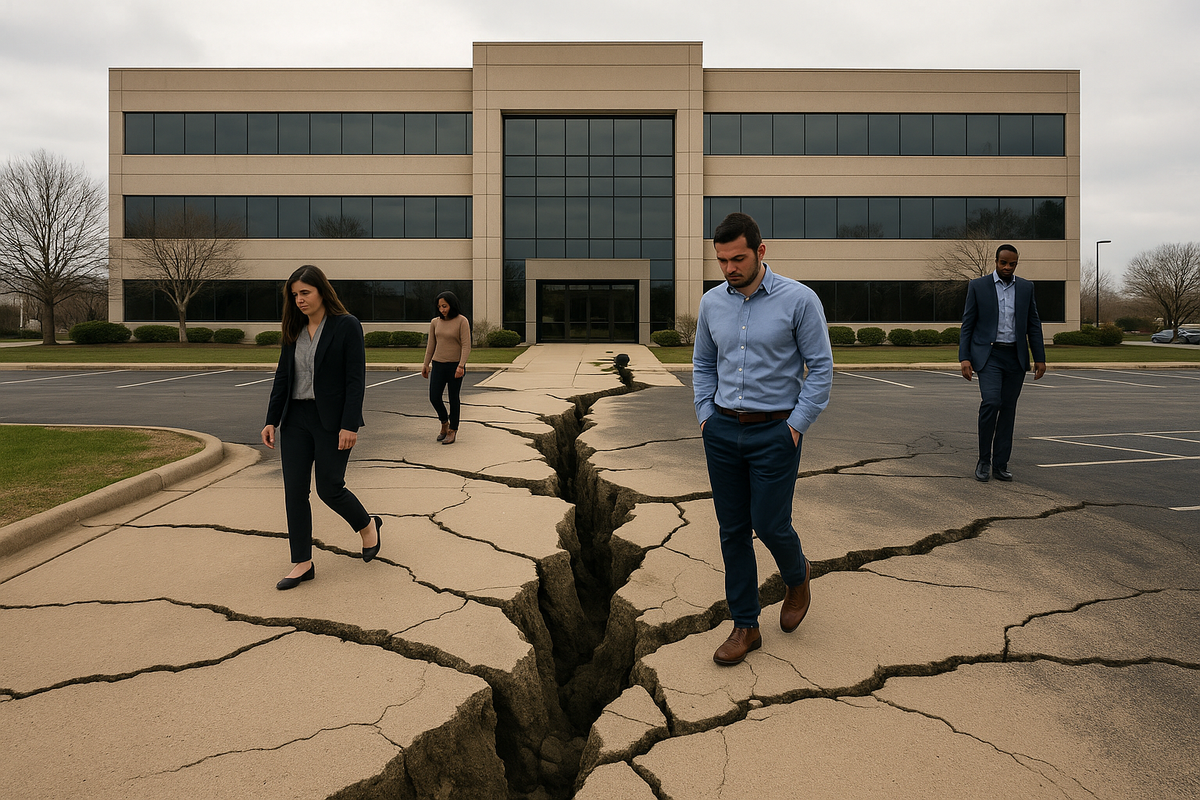
Wendy S. Huffman | WBN News Nashville | October 6, 2025
In recent months, business management experts have named a workplace trend called quiet cracking: a slow erosion of motivation as employees disengage, not by choice but by gradual collapse. Unlike quiet quitting, which is deliberate, quiet cracking is an involuntary fracture in energy and hope.
But what if quiet cracking is not limited to the office? What if we are living through a widespread quiet cracking — one that touches families, schools, social structures, and even the private corners of our inner lives?
The signs are there. Children who emerged from COVID’s disruption still struggle with anxiety and disconnection. Families still carry grief from lives lost during the pandemic, often without the closure of goodbyes. Communities feel splintered by political toxicity and the fear of speaking freely without judgment. Even everyday conversations seem fragile, as though we are all quietly tiptoeing around hidden fractures.
Researchers describe this as collective trauma — the wounds that entire populations carry after crises. COVID-19, divisive politics, economic strain, and constant media exposure have converged to create overlapping stressors. The result is not just burnout at work but something more pervasive: the quiet cracking of society itself.
If we name this, perhaps we can face it. And if we face it, perhaps we can begin to heal. Organizations like Braver Angels (https://braverangels.org) give us an opportunity to understand each other and help to create curiosity about our differences, with a commitment to finding the common ground. We must replace hate and anger with healing. We must complete the pain of the past to move through to a new future.
This is a series exploring the faces of quiet cracking — from pandemic grief to generational stress, media overload to cascading crises — and the ways we might mend what has quietly fractured.
Because the cracks are real. But so is our capacity to repair them.
TAGS: #Quiet Cracking #Collective Trauma #Societal Healing #Workplace Culture #Pandemic Grief #Political Division #Emotional Resilience #Future Of Work #Ripple Dialogues #Braver Angels
Wendy Huffman is the Editor of WBN News Nashville and Africa Edition, where she brings the fun back to journalism—covering local buzz, business insight, and some serious subjects in between. Her role with the Africa Edition grew from her deep commitment to the continent through LetsMakeTheDifference.org, the international nonprofit she founded to empower and uplift underserved communities.
Later this year, our upcoming podcast, The Ripple Dialogues, will also step into this gap, inviting small conversations with the power to make big waves of change. We will examine the different aspects of its impact in society, and personally, with guest experts and the sharing of stories of resilience and healing.
Connect with Wendy on Linkedin.com/in/wendyhuffman
Aspiring writers and passionate voices are invited to join the contributor community and help shape stories that matter. Subscribe and/or become a contributor here.
SOURCES:
- UConn Today (2025) – Management Professor Offers Advice on How to Combat Quiet Cracking in the Workplace
- American Psychological Association (APA, 2023) – Stress in America: Collective Trauma Recovery




